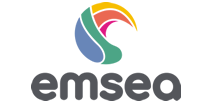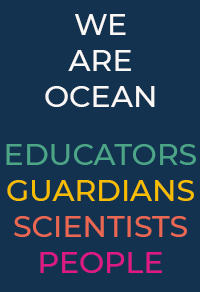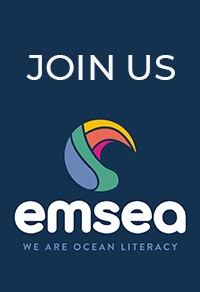Susan Haynes: sharing deep-ocean science education resources across the US through NOAA Ocean Exploration
This article is part of the blog series ‘Meet the members’ in which you’ll get to know the EMSEA members, what drives them and what inspires them. They’ll share their experience, their good practices, their challenges. They’ll talk about what ocean literacy means to them and how they hope to reach it. Today we meet Susan Haynes, NOAA Ocean Exploration Education Coordinator (contracted Project and Program Manager via Groundswell).

Moving quite a bit throughout her childhood and living in many different states, Susan Haynes found her home anchor (as did her entire family) at her grandparent’s rustic summer home on Martha’s Vineyard, an island off the coast of Massachusetts. ‘My fascination for the ocean started the first time my feet landed in beach sand as a very young child. My family instilled a love for nature and water in me and, from a career standpoint, my parents always encouraged my siblings and me to follow our hearts.’

Since her heart was deeply planted in marine science, Susan moved from the cornfields of the Midwest to study zoology and marine biology at the University of Rhode Island. ‘My early undergraduate academics were somewhat disillusioning. At the time, the instruction was extremely textbook-oriented and I craved being outside and applying what I was learning,’ Susan says. During the summer after earning her bachelor’s degree, she worked as a naturalist at a state park in Newport, Rhode Island, where she quickly fell in love with teaching the general public about her passion for the ocean and all things in it. ‘I am so grateful for that first job experience. It just kind of snowballed from there,’ Susan says. She moved on to get a master’s degree in adult and environmental education and from there, built a career in marine science education.
Her experiences at Baltimore National Aquarium, Oregon Coast Aquarium, Virginia Institute of Marine Science and the National Ocean Sciences Bowl eventually led her to the Office of Ocean Exploration and Research at NOAA. ‘When this education position contracting with NOAA Ocean Exploration came open, the NOAA ship Okeanos Explorer was just being commissioned. It’s the first and only U.S. federal ship dedicated to ocean exploration specifically for the sake of exploration. So… who wouldn't want to work with that, right?’ she says with sparkling eyes.

Ocean Exploration Education
As Education Coordinator, Susan is focused on content development, ocean education project management and program development for NOAA Ocean Exploration. In her earlier years, she helped create the education content and programming associated with the Okeanos Explorer, tackling themes such as Why Do We Explore?, targeting energy, climate change, human health and ocean health and How Do We Explore?, targeting different technologies including high-resolution seafloor mapping using multibeam sonar, water column exploration and underwater robots. ‘At the time, telepresence (advanced broadband satellite communication) was a cutting-edge technology. Being able to bring all that exists at depths down to 6000 meters and share incredible new discoveries directly to shore in real time quickly changed our ability to communicate with the public about ocean science and exploration. Generally, when people look out to the ocean, they really only see the surface. Being able to bring the amazing biology and geology of the deep sea to living rooms and classrooms was absolutely groundbreaking,’ Susan remembers. ‘Today, it has become an incredibly valuable tool to inspire people across the globe to see the ocean with new eyes and a new perspective.’
Sharing ocean exploration discoveries (like a white octopus found at 4,000 meters depth or a hydrothermal vent teeming with life) during live interactions either from shore or from the ship is a highlight of Susan’s work.
A big piece of the NOAA Ocean Exploration education team’s work revolves around providing a nationwide educator professional development program: ‘Adopting the ‘teach the teacher’ philosophy since the beginning of the program in 2001, has allowed us to reach as many students as possible across the country,’ Susan says. She and her colleagues create lessons that support current education science standards within the U.S. and, of course, the Ocean Literacy Essential Principles and Fundamental Concepts. They also develop topical deep-sea videos and fact sheets and host online interviews with experts, all free and accessible for classroom use. Periodically, they are also able to connect classrooms directly with the Okeanos Explorer for first hand live interactions with expeditions.
 Facilitating an Exploring the Deep Ocean with NOAA educator professional development workshop, San Juan, Puerto Rico, 2019.
Facilitating an Exploring the Deep Ocean with NOAA educator professional development workshop, San Juan, Puerto Rico, 2019.
Together with two other substantial ocean exploration organisations and in partnership with the U.S. National Marine Sanctuary Foundation, NOAA Ocean Exploration built a website called the Deep Ocean Education Project, designed as a one-stop-shop for ocean exploration education resources and information. ‘This site was built in cooperation with Ocean Exploration Trust, which runs the E/V Nautilus, and Schmidt Ocean Institute, which operates the R/V Falkor. Together we have three substantial vessels out there exploring and on the website the public can track where they’re going and directly access live streaming video when they are at sea,’ Susan explains.
Ocean Literacy challenges
Even with this wide scope and free availability of materials, reaching everyone in the United States and beyond is difficult. ‘Generally, our coastal populations know more about the ocean and marine issues than those living in the central portions of our country,’ she says. ‘We need to better educate our entire population to understand that it doesn't matter where we live, each of us still influences the ocean and the ocean influences us.’ For that, Susan says it’s important to ‘meet people where they are’. She explains: ‘As educators and communicators, we must understand what people’s needs are. For example: all teachers, including those with little or no access to the ocean, are obligated within their curriculum to teach about certain scientific processes. By offering ready-to-go materials and solid ocean examples of those concepts and processes, we can help teachers to spice up their often solely terrestrial-based lessons and expose students to more ocean science.’

Demonstrating light and color in the deep sea during an online educator professional development event.
According to Susan, one of the biggest challenges for the ocean literacy movement in the upcoming years will be to keep the drum beating once the UN Ocean Decade for Ocean Science and Sustainable Development is over in 2030. ‘The Decade is definitely having a huge global impact on the visibility of ocean literacy. However, decades go by fast. The momentum must continue far beyond the decade,’ Susan emphasizes. ‘But there’s hope. If we consider what has happened with ocean technology in the past ten years or so, just imagine what's going to happen in the next ten years. I think the continued growth in our capabilities will be mind-boggling and has the potential to bring ocean understanding closer to more people. And, one of the things that elevates me the most in my profession is that there is an incredible international community of dedicated marine science educators and communicators out there, and we are growing in numbers. It has been incredibly uplifting to watch not only the growth of the visibility of marine science education and organisations such as NMEA and EMSEA, but the passion involved as well. And I think that passion can carry us far.’
 Pictured here at the 2023 NMEA conference in Bellingham, Washington, Susan and her colleague Géraldine Fauville (NMEA and EMSEA member) co-chair the NMEA International Committee.
Pictured here at the 2023 NMEA conference in Bellingham, Washington, Susan and her colleague Géraldine Fauville (NMEA and EMSEA member) co-chair the NMEA International Committee.
Text by Anke de Sagher & Susan Haynes for EMSEA
Photos by Susan Haynes
More on NOAA Ocean Exploration & Susan Haynes
Website · Facebook · Instagram · X · YouTube · LinkedIn NOAA Ocean Exploration · LinkedIn Susan Haynes
Want to join the community? Find out how to become an EMSEA member!


